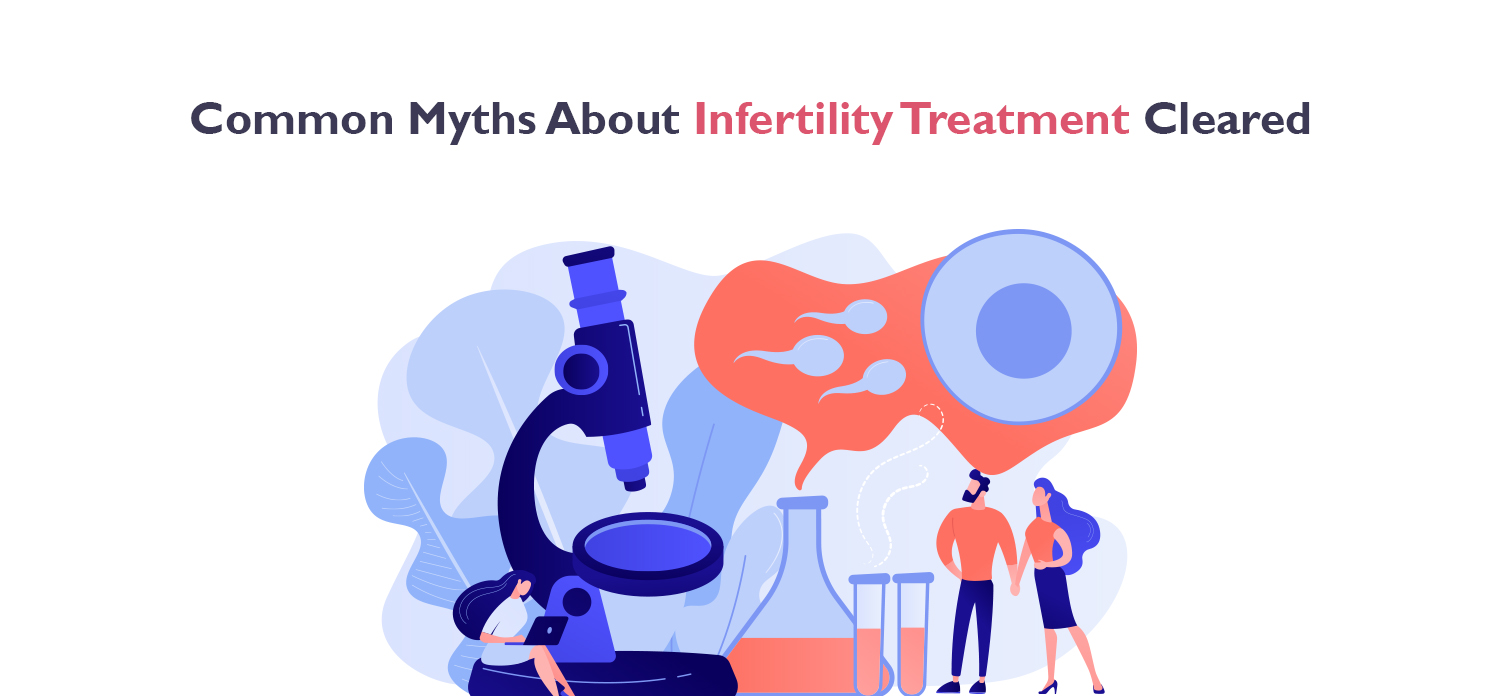A couple must dispel infertility treatment myths and doubts. A good rapport with the Infertility specialist and the hospital is essential to a successful outcome. Here is a a list of common misconceptions and misconceptions about infertility treatment myths and facts.
Myth 1 : Infertility treatment is not confined to women, according to the first myth
Women's access to reproductive technologies such as ARTs is becoming more common. Male infertility issues such as low sperm count and poor sperm mobility can be helped by procedures such as ICSI, IMSI, and PICSI. Treatment plans for both partners are devised after a thorough examination and final diagnosis by the specialist.
Myth 2 : IVF is the only way to guarantee a successful outcome
Not at all. The success of IVF depends on a variety of factors, including the age of the woman undergoing the procedure, the cause of her infertility, and her current hormonal and biological state. According to research, women under the age of 35 have a higher chance of becoming pregnant through IVF. The likelihood of becoming pregnant decreases as one gets older. The best way to learn about IVF in India is to meet with an expert in the field.
Myth 3 : IVF-born children are more likely to be born with low birth weight or other congenital disabilities
IVF and natural conception carry the same health risks to the baby. The risk of abnormalities increases when the mother is over 35 years old and has a family history of genetic disorders. Identifying chromosomal errors in the fetus is possible using assisted reproductive technologies such as PGT-A, PGT-M, and PFT-SR. When chromosomal abnormalities are found, IVF can be used to help mothers get pregnant and give birth to a healthy baby.
Myth 4 : IVF is pricey and not for everyone's wallet
The cost of in vitro fertilization varies depending on several factors, including the doctor's location, expertise, and the mother's health. Infertility treatment costs can be covered in whole or in part by insurance policies. Alternatively, couples can save money for the therapy and then go for it when they can afford it. Speak to a doctor about in vitro fertilization costs in India.
Myth 5 : Having twins results from numerous assisted reproductive technology forms.
This is a common myth about IVF that has been around for a long time. It's not uncommon for IVF cycles to result in multiple pregnancies, but a single embryo transfer option is now available to reduce the likelihood of having twins. Drugs that boost ovulation during these cycles can increase the risk of multiple pregnancies. Women under 30 who use IVF are more likely to become pregnant with multiples, including twins or triplets.
Conclusion
People seeking fertility treatment worldwide should do their homework, ask questions, and feel free to express their concerns to their doctors. IVF specialists in India and IVF hospitals in India have become easier to find, thanks to technological advancement.
To get the best advice and treatment plan, it's important to remember to see a fertility specialist. It would help if you never relied solely on the internet to diagnose your medical condition. Keep yourself safe, healthy, and informed at all times.


